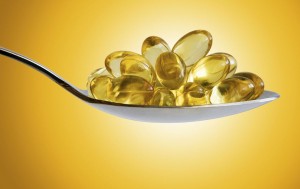
For obese Americans who are low on vitamin D, taking a supplement of the nutrient might help them lose weight, a new study suggests.
According to an Italian team, led by Luisella Vigna of the University of Milan, prior research has shown that vitamin D deficiency is associated with a higher risk of obesity and obesity-related complications.
However, studies on the use of vitamin D supplements to curb obesity have so far been inconclusive, the team said.
The new study included 400 overweight and obese people with vitamin D deficiency who were put on a low-calorie diet and then divided into three groups. One group took no vitamin D supplements, while the two other groups took either 25,000 international units (IU) or 100,000 IU of vitamin D per month.
After six months, participants in both vitamin D supplementation groups had lost more weight and had greater reductions in their waistlines than those who hadn’t taken the supplements, Vigna’s team said.
Our Take
“Several reports have shown that overweight and obese people often have low blood levels of vitamin D,” said Philip Tate, MD, an endocrinologist with Spectrum Health Medical Group. “But it’s not yet clear whether obesity itself may cause a low vitamin D level or if it’s the other way around.”
Direct research looking at vitamin D and weight loss is still growing. And there are many theories as to how the two may be connected.
Some scientists believe body fat traps vitamin D, making it less available. Others think the hypothalamus, the part of brain that regulates hormonal functions, may sense low vitamin D levels and respond by increasing the body weight set point and releasing hunger-stimulating hormones. Or, adequate levels of vitamin D may prevent fat cells from maturing.
“Right now, there’s no proven interaction between vitamin D and eating behavior, appetite, hunger, energy metabolism or weight,” Dr. Tate said. “If a preliminary report like this one is confirmed, it may indeed point the way to a whole new area of investigation.”
The key, said Dr. Tate, is keeping your vitamin D levels in the optimum range no matter what your weight.
“I recommend everyone supplement with 1,000 to 2,000 IU of vitamin D a day. Get the cheapest brand and get vitamin D3,” he said. “It’s very hard to get too much and if people believe it’ll help with whatever health intervention they’re undertaking, I say go for it.”
The study was to be presented Thursday at the European Congress on Obesity. Experts note that studies presented at medical meetings are typically considered preliminary until published in a peer-reviewed journal.
“The present data indicate that in obese and overweight people with vitamin D deficiency, vitamin D supplementation aids weight loss and enhances the beneficial effects of a reduced-calorie diet,” Vigna’s team wrote. The researchers suggest that all overweight and obese people should have their vitamin D levels tested.
Previous studies have suggested that about 40 percent of North American adults are vitamin D-deficient, according to the study.
Two experts in the United States said the findings might have merit for some.
“This study is somewhat reminiscent of a few years back, when there was an explosion of research on the effect of calcium in aiding in weight loss [and weight loss maintenance],” said Dr. Christopher Ochner, an expert in nutrition, weight loss and obesity at The Mount Sinai Hospital in New York City. “However, it is very important to note that the effect of vitamin D appears limited to only those people who are vitamin D-deficient.”
Getting the right amounts of vitamins and other nutrients is important, Ochner said. However, “this study does not suggest that everyone looking to lose weight should start taking large doses of vitamin D—or any other supplement,” he stressed, adding that “most individuals are not vitamin D-deficient.”
Toni Marinucci is a registered dietitian nutritionist at Staten Island University Hospital in New York City. She said vitamin D deficiency may undermine efforts to maintain a healthy weight.
The study suggests that “overweight and obese adults who are vitamin D-deficient can benefit by coupling their efforts on a reduced-calorie diet with consuming a vitamin D supplement,” Marinucci said.
Vitamin D is nicknamed the “sunshine vitamin” because the body produces the nutrient when skin is exposed to sunlight. People can also get vitamin D through such foods as eggs, milk, yogurt, tuna, salmon, cereal and orange juice.
 /a>
/a>
 /a>
/a>
 /a>
/a>